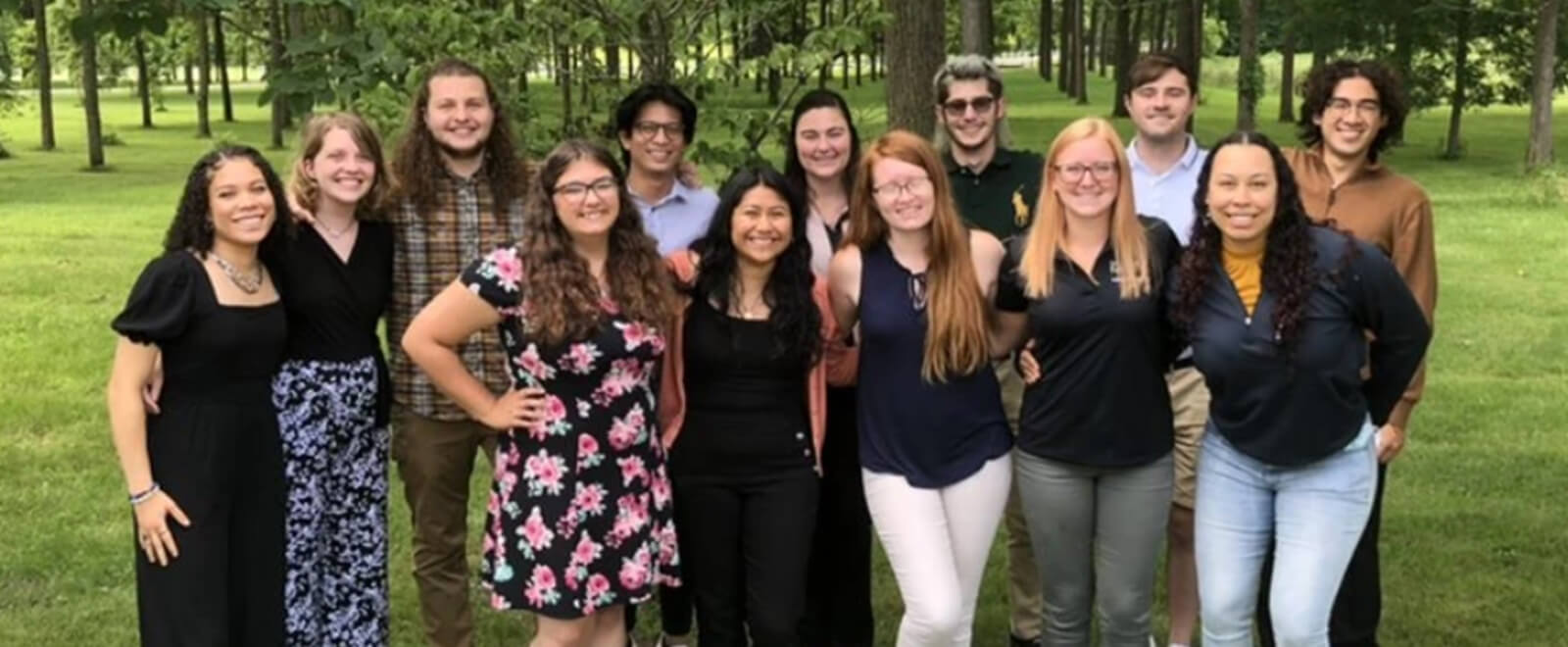REEU program highlights “Familiar Faces” to increase diversity in FNR
The Department of Forestry and Natural Resources (FNR) is always looking for opportunities to grow the department and expand the field, including by attracting diversity to the major.
This summer, two FNR initiatives worked in tandem to provide research experience to traditionally underrepresented students in FNR and expose more students, from undergraduate through elementary, to natural resources studies.
For the second year, Liz Flaherty, associate FNR professor, and Megan Gunn, FNR recruitment and outreach specialist, hosted a Research and Extension Experiential Learning for Undergraduates (REEU) eight-week program. The objective was to expose undergraduates interested in FNR to research opportunities and Extension work.
The REEU paired with Gunn’s Familiar Faces Project, an online blog that showcases diverse faces and experiences within natural resources, to highlight the experiences and work of students in the REEU.
“The goal of the REEU was to increase participation and diversity in natural resource science, show the variety of career opportunities and afford students the chance to gain summer research experience,” Flaherty said.
“I learned a lot about how to write a research paper and present findings to academics. I also gained experience with data management, which is very useful.”
Students also took facets of their research projects and adapted them for high school audiences, traveling to McCutcheon High School to teach and instruct field work.
“High school students had to produce a deliverable based on their work and research with REEU participants,” Gunn explained. “It was great for our REEU students to see the evidence of their teaching and outreach. I think many REEC students valued and understood Extension work a lot more after this experience.”
The students also developed as researchers in other key areas.
“They gained a lot of hard skills like data management, technical literacy and science education expertise, but they also grew skills like teamwork and time management,” Flaherty said. “We also tried to expose them to the concept of constructive criticism so they get used to that going forward. The value of that is huge.”
While this was the final year Gunn and Flaherty will host the REEU program, they both said increasing diversity in FNR through outreach, education and intentional instruction remains a core part of their mission and the department’s.

“That’s actually my entire job,” Gunn continued. “I go to high schools that have large minority student populations and share all the opportunities a discipline like the natural sciences has to offer. I was up at a high school near Chicago, talking to a teacher and she was saying the only recruits that come to that school are military recruiters. We want to change that.”
Flaherty said she will continue to include and advocate for the inclusion of research opportunities as part of course work.
“There’s a push in STEM fields and natural resources to make access to research experiences more equitable,” Flaherty explained. “This way every single student automatically gets research experience, and it’s not dependent on them having extra time or additional resources.”
Gunn said increasing diversity in FNR goes beyond educating students about the field. For many, their career choices come down not to what they are passionate about but what seems practical. Gunn is committed to showing students how passion and practicality can be married through an education and career in natural resources.
“The main point of Familiar Faces is to show students everywhere there are people that look like them, with similar backgrounds as them, that are succeeding in FNR disciplines,” Gunn added. “A lot of kids with these backgrounds need a career to help support their family. I will talk through everything from their life goals to their budget with them to demonstrate how a passion for natural resources can actually help them achieve those aims.”
For Shimizu, the experience only furthered his commitment to his chosen path.
“I thought I might want to go to graduate school to study forestry, but now I know for sure,” he said. “The REEU solidified my commitment to FNR. For other students out there, those that think they might be interested in this major, if you see an opportunity like this, take it.”





